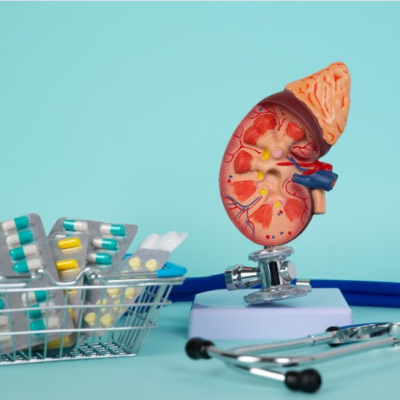
Pain medications have become a common household necessity, providing relief from headaches, muscle aches, and chronic joint pain. The most widely used over-the counter (OTC) painkillers include acetaminophen (Tylenol) and non-steroidal anti-inflammatory drugs (NSAIDs) such as ibuprofen (Motrin, Advil), naproxen (Aleve), and diclofenac (Voltaren). Acetaminophen works primarily in the brain to reduce pain and fever, while NSAIDs reduce inflammation at the site of injury. Both are effective, but they can affect different parts of the body, including the kidneys, when used over long periods or at high doses. The availability of these medications over the counter was enabled by legislation in the early 2000s aimed at making pain management more accessible. Before this time, many painkillers were only available by prescription, but the push for easier access to relief led regulatory agencies like the FDA to approve these drugs for OTC sale. The shift in policy allowed millions of people to manage pain on their own, but it also raised concerns about the long-term impact of unsupervised use, particularly on vital organs such as the kidneys.
How Painkillers Can Impact Your Kidneys
NSAIDs, including diclofenac, ibuprofen (Motrin), naproxen, and meloxicam, have the potential to harm the kidneys, these medications, especially when used regularly or in high doses, reduce blood flow to the kidneys by inhibiting the production of prostaglandins, which are essential for maintaining healthy kidney function. Prostaglandins is a chemical which help to dilate blood vessels in the kidneys, ensuring adequate blood flow. When prostaglandin production is blocked, the blood vessels constrict, leading to reduced blood flow. In acute instances, this reduced blood flow can cause acute kidney injury (AKI), where the kidneys suddenly shut down. Prolonged or high-dose use of NSAIDs can also contribute to the development of chronic kidney disease (CKD), where the kidney function gradually declines. People with pre-existing kidney conditions or those who are dehydrated are especially vulnerable to these effects.
Who Is at Risk for Kidney Damage with NSAID Use?
While NSAIDs are commonly used for pain relief, not everyone can take them safely. Certain individuals are more vulnerable to the potential kidney damage associated with long-term or high-dose NSAID use. Here are the groups most at risk:
• People with Pre-existing Kidney Disease
• The Elderly:
• People with Hypertension or Heart Disease
• Those Taking Certain Medications: Medications such as diuretics (used to treat high blood
pressure or heart failure) and ACE inhibitors (also for blood pressure) can increase the risk of
kidney problems when combined with NSAIDs.
• Dehydrated Individuals
• Chronic NSAID Users
Strategies to Protect Your Kidneys from NSAIDs
• Use the Lowest Effective Dose: Take NSAIDs only as needed, using the smallest dose for the
shortest time possible.
• Stay Hydrated: Drink plenty of water to help your kidneys function properly during NSAID use.
• Avoid Drug Combinations: Don’t mix NSAIDs with medications like diuretics ( Water pills) or
ACE inhibitors and angiotensin receptor blockers. (Lisinopril or Losartan) without consulting
your doctor.
• Monitor Kidney Health: If you use NSAIDs regularly, ask your doctor to check your kidney
function periodically.
• Consider Alternatives: Explore non-NSAID options like acetaminophen, physical therapy, or
other non-drug therapies.
• Limit Alcohol: Avoid excessive drinking while using NSAIDs to reduce kidney stress.
•Consult Your Doctor: If you have existing kidney issues, ask your healthcare provider about safer alternatives.

